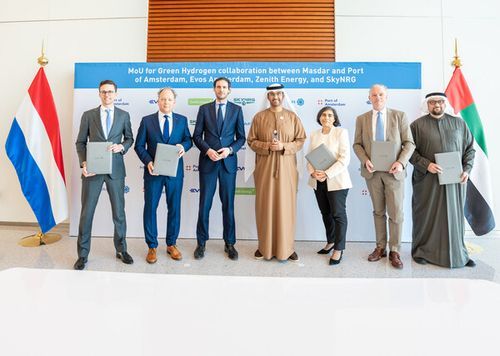The California Air Resources Board (CARB) has released proposed changes to the Low Carbon Fuel Standard program following a public comment period earlier this year.
In the revised proposal, the CARB suggests a substantial increase in the stringency of the CI reduction target for the year 2025, moving from the originally planned 5% annual increment to a 9% reduction. This increase is a part of the overall strategy to accelerate the decarbonization of the transportation fuel mix in California.
The rationale behind this steeper increase is tied to the program’s need to align more closely with California’s ambitious climate goals, particularly the 2022 Scoping Plan Update that aims for carbon neutrality by 2045.
The market for low-carbon fuels has been performing better than expected, leading to what CARB terms “overperformance” in credit generation relative to the existing targets – a dynamic that is reflected in low LCFS credit prices. The 9% target is designed to leverage this overperformance, pushing the market further toward adopting low-CI technologies and fuels.
The 9% increase in 2025 also sets a precedent for the potential use of the Automatic Acceleration Mechanism (AAM) in future years. The AAM could further adjust CI benchmarks if market conditions allow, ensuring that the LCFS program remains a dynamic and responsive tool in California’s climate strategy.
CARB also proposes the following changes, which are further discussed in a draft environmental impact analysis: remove fossil jet fuel from the list of transportation fuels subject to the LCFS; modify the annual carbon intensity benchmarks for gasoline and fuels used as a substitute for gasoline, diesel fuel and fuels used as a substitute for diesel fuel, and fuels used as a substitute for fossil jet fuel; expand zero emission vehicle refueling infrastructure crediting opportunities; remove eligibility for hydrogen produced from fossil fuels beginning in 2031; modify crediting provisions for biomass-based diesel pathways; reduce the crediting periods for avoided methane emissions; provide an opportunity for automakers to generate base credits; and add further details to the sustainability certification proposal.
1. Remove Fossil Jet Fuel from the List of Transportation Fuels Subject to the LCFS
- Objective: Focus the LCFS program on promoting low-carbon alternatives rather than supporting fossil fuels.
- Impact: Fossil jet fuel will no longer be eligible to generate credits under the LCFS. This change is intended to encourage the development and adoption of sustainable aviation fuels (SAFs) and other low-carbon alternatives, aligning the program with California’s long-term climate goals.
2. Modify the Annual Carbon Intensity (CI) Benchmarks
- Objective: Strengthen the CI reduction targets to accelerate decarbonization of transportation fuels.
- Changes:
- Gasoline and Substitutes: The CI reduction target for gasoline and its substitutes will be made more stringent, moving towards a 30% reduction by 2030 and a 90% reduction by 2045.
- Diesel and Substitutes: Similar tightening of CI benchmarks for diesel fuel and its substitutes to ensure faster reductions in carbon emissions.
- Fossil Jet Fuel Substitutes: Post-removal of fossil jet fuel, the focus will shift to encouraging lower CI alternatives.
3. Expand Zero Emission Vehicle (ZEV) Refueling Infrastructure Crediting Opportunities
- Objective: Support the rapid buildout of refueling infrastructure for ZEVs, particularly for heavy-duty vehicles.
- Changes:
- Heavy-Duty Vehicles: New crediting opportunities will be introduced for infrastructure supporting heavy-duty ZEVs, such as hydrogen refueling and fast-charging stations.
- Light- and Medium-Duty Vehicles: Existing infrastructure crediting for light-duty ZEVs will be extended and expanded to include medium-duty vehicles, incentivizing broader ZEV adoption.
4. Remove Eligibility for Hydrogen Produced from Fossil Fuels Beginning in 2031
- Objective: Encourage the production of renewable, low-carbon hydrogen and phase out fossil fuel-derived hydrogen.
- Impact: Hydrogen produced from fossil fuels will no longer be eligible for LCFS credits starting in 2031. This change aligns with the state’s strategy to decarbonize the hydrogen supply and transition to cleaner production methods such as electrolysis and biomass gasification.
5. Modify Crediting Provisions for Biomass-Based Diesel Pathways
- Objective: Adjust the LCFS to better support the transition to zero-emission vehicles and prioritize the use of advanced biofuels.
- Changes:
- Stop New Applications: Starting January 1, 2031, new applications for biomass-based diesel fuel pathways will no longer be accepted, contingent on the successful implementation of California’s medium- and heavy-duty (MHD) zero-emission vehicle regulations.
- Feedstock Restrictions: Limits will be imposed on crediting biomass-based diesel produced from virgin soybean and canola oil, restricting its contribution to overall diesel fuel pathways to 20%.
6. Reduce the Crediting Periods for Avoided Methane Emissions
- Objective: Align methane capture incentives with the broader shift away from combustion-based fuels.
- Changes: The number of crediting periods for avoided methane emissions will be reduced from three to two consecutive 10-year periods for projects breaking ground before 2030. This reduction reflects the intent to phase out methane use in transportation over time.
- For Projects Initiated After 2029: Projects that begin after December 31, 2029, will not be eligible to generate credits for biomethane used in compressed natural gas (CNG) vehicles after December 31, 2040. This phase-out is designed to encourage the early shift towards zero-emission vehicle technologies.
- Hydrogen Production Exception: Biomethane used to produce renewable hydrogen will still be eligible for LCFS credits until 2045, aligning with the broader strategy of supporting hydrogen as a key energy carrier in the decarbonized economy.
7. Provide an Opportunity for Automakers to Generate Base Credits
- Objective: Encourage automakers to contribute directly to transportation electrification efforts.
- Changes: Original equipment manufacturers (OEMs) of zero-emission vehicles will be allowed to generate base credits for residential electric vehicle charging. These credits must be used to promote and support transportation electrification within California, with the percentage of credits tied to ZEV sales.
8. Add Further Details to the Sustainability Certification Proposal
- Objective: Ensure biofuel production does not contribute to deforestation or adverse land-use changes.
- Changes:
- Sustainability Certification: New requirements will be phased in, starting with the collection of supply chain data and culminating in mandatory third-party sustainability certification by 2031 for all biomass feedstocks used in biofuel production.
- Region-Specific LUC Values: The program will incorporate more granular land-use change (LUC) carbon intensity values based on the geographic origin of biofuel feedstocks, ensuring more accurate and region-specific assessments.






